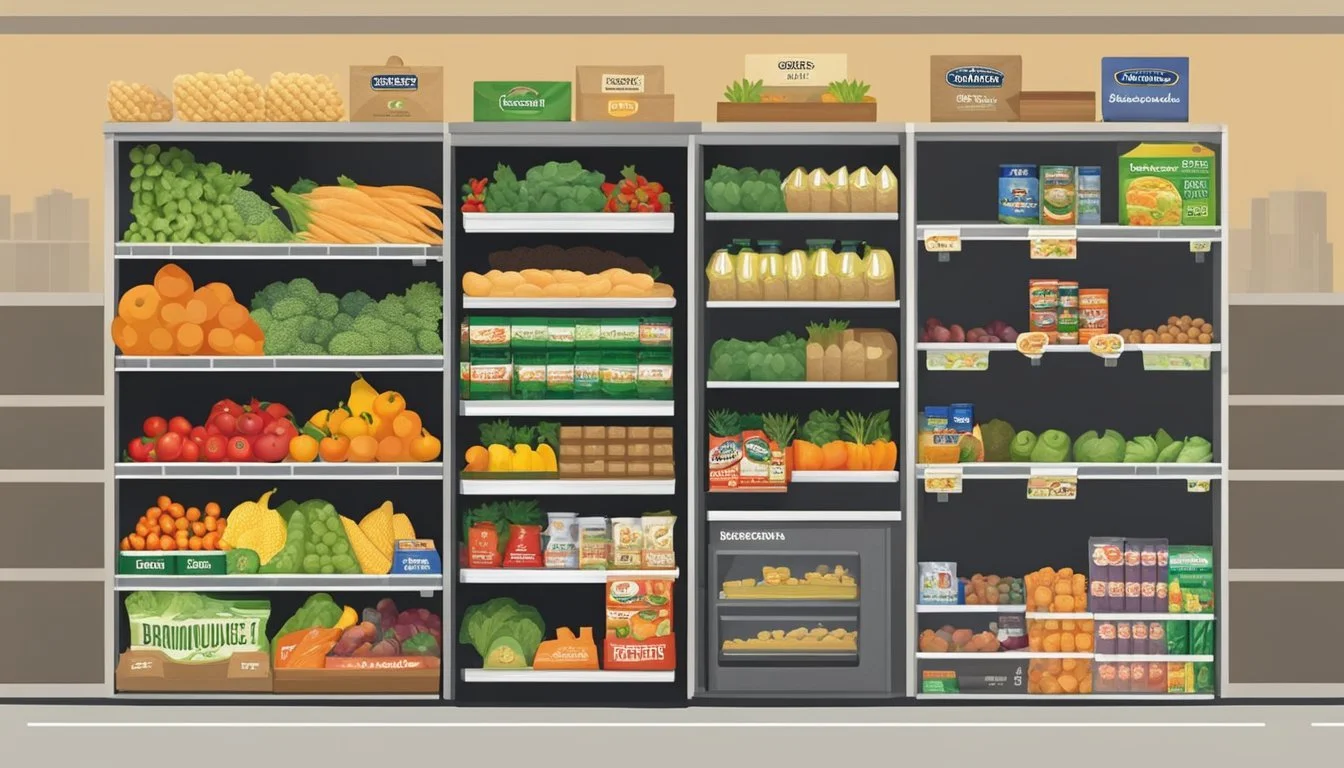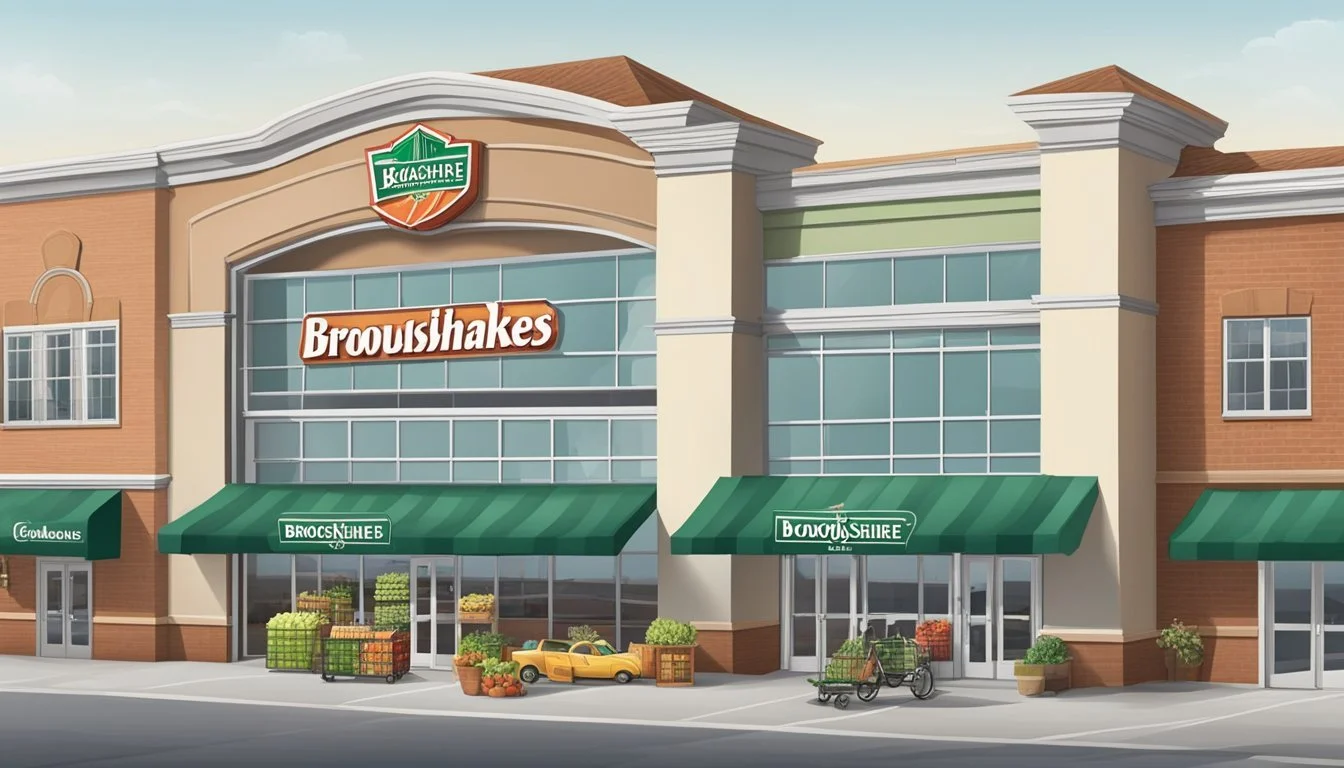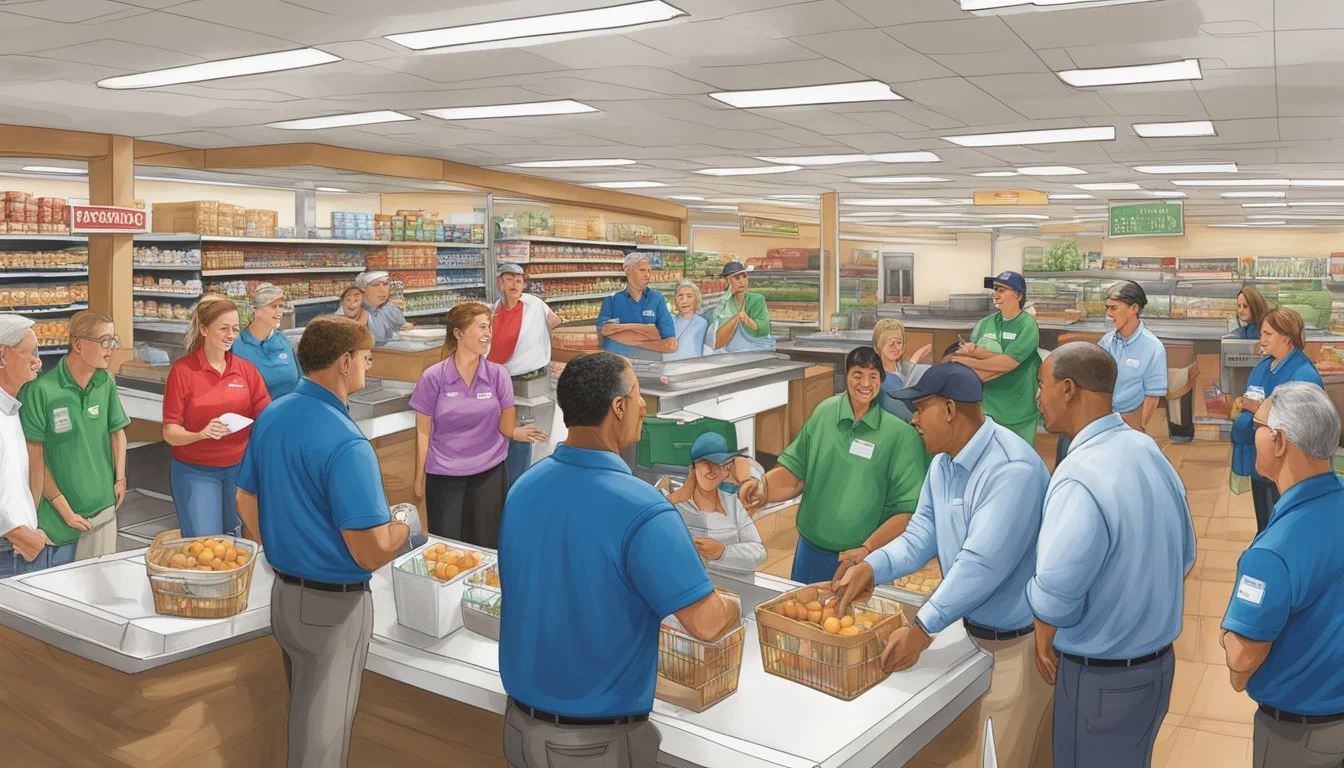Brookshire Grocery Company vs Demoulas Market Basket
A Comprehensive Comparison of Price, Quality, and Service
Brookshire Grocery Company and Demoulas Market Basket are two regional grocery chains that have carved out loyal customer bases in their respective markets. While Brookshire operates primarily in Texas, Louisiana, and Arkansas, Market Basket serves communities across New England.
Both companies have built reputations for quality products and competitive pricing. Market Basket, in particular, has gained attention for its ability to keep prices low even during periods of high inflation. A recent study by consumer data firm Dunnhuby ranked Market Basket as the top grocery chain for affordability and overall value among over 60 competitors.
Despite their similarities as family-owned businesses, the two chains have had markedly different experiences in recent years. Market Basket weathered a highly publicized ownership dispute in 2014 that temporarily disrupted operations but ultimately reinforced employee and customer loyalty. Brookshire, meanwhile, has maintained a steadier course, focusing on gradual expansion and modernization of its stores.
History of the Companies
Brookshire Grocery Company and Demoulas Market Basket both have rich histories spanning several decades. These family-owned businesses grew from humble beginnings to become significant regional grocery chains.
Brookshire Grocery Company Beginnings
Brookshire Grocery Company was founded in 1928 in Tyler, Texas. Wood T. Brookshire opened the first store with just $2,500 in startup capital. The company expanded gradually throughout East Texas in its early years.
By the 1950s, Brookshire's had grown to 19 stores. The company continued to innovate, introducing in-store bakeries and delis in the 1970s. Brookshire's also launched its own private label brands.
Today, Brookshire Grocery Company operates over 180 stores across Texas, Louisiana, and Arkansas. The Brookshire family remains involved in leadership, with the fourth generation now at the helm.
The Rise of Demoulas Market Basket
Demoulas Market Basket traces its roots to 1917 when Greek immigrants Athanasios "Arthur" and Efrosini Demoulas opened a small grocery store in Lowell, Massachusetts. The store specialized in fresh lamb and catered to the local Greek community.
In 1954, brothers Telemachus and George Demoulas purchased the store from their parents for $15,000. They rapidly expanded the business, opening additional locations throughout the region.
By the 1990s, Market Basket had grown to dozens of stores. However, family disputes over ownership led to public controversies. In 2014, employee protests in support of Arthur T. Demoulas garnered widespread attention.
Market Basket now operates 88 stores across New England, known for low prices and employee loyalty.
Business Model and Operations
Brookshire Grocery Company and Demoulas Market Basket employ distinct business models and operational strategies. These approaches shape their pricing, customer service, and supplier relationships.
Revenue and Pricing Strategies
Brookshire Grocery Company focuses on competitive pricing while maintaining product quality. They offer regular promotions and a loyalty program to drive sales. Their diverse store formats cater to different market segments.
Market Basket, in contrast, adopts an everyday low-price strategy. They consistently offer lower prices than competitors without relying on sales or loyalty programs. This approach has helped them gain significant market share in regions like Boston and New Hampshire.
Both companies prioritize operational efficiency to support their pricing strategies. Market Basket's lean management structure contributes to lower operating costs, allowing for sustained low prices.
Customer Service Approaches
Brookshire Grocery Company emphasizes personalized service and community engagement. They invest in employee training and retention to ensure knowledgeable staff interactions. The company also supports local charities and events to strengthen community ties.
Market Basket is renowned for its exceptional customer service. Their employees are known for their helpfulness and product knowledge. The company's dedication to customer satisfaction played a crucial role during the 2014 employee-led protests, demonstrating strong loyalty from both staff and shoppers.
Both supermarket chains prioritize a clean shopping environment and well-stocked shelves. Market Basket's approach has earned them a particularly devoted customer base in New England.
Supply Chain and Supplier Relationships
Brookshire Grocery Company maintains a diverse supplier network. They balance national brands with private-label products to offer variety and value. The company invests in modern distribution centers to optimize inventory management and reduce costs.
Market Basket focuses on building long-term relationships with suppliers. Their efficient supply chain allows them to negotiate favorable terms, supporting their low-price model. The company is known for prompt payment to suppliers, fostering trust and reliability.
Both chains emphasize local sourcing where possible, particularly for fresh produce. This strategy supports regional economies and ensures fresher products for customers. Market Basket's strong supplier relationships proved crucial during their 2014 crisis, with many vendors supporting the company through the turmoil.
Store Offerings and Services
Brookshire Grocery Company and Demoulas Market Basket offer diverse product ranges and specialized departments. Both chains prioritize quality and variety to meet customer needs.
Product Variety and Quality
Brookshire Grocery Company provides a wide selection of national brands and private-label products. Their stores stock fresh produce, meats, dairy, and pantry staples. Market Basket is known for its extensive product range, including fresh produce and high-quality meats.
Market Basket emphasizes value, offering competitive prices on groceries. Their stores feature a mix of name-brand items and their own Market Basket brand products.
Both chains prioritize fresh produce. They source fruits and vegetables from local farmers when possible, ensuring quality and supporting regional agriculture.
Specialty Departments
Brookshire's deli counters offer made-to-order sandwiches and prepared meals. Their meat departments provide custom cuts and a variety of fresh options, including poultry and beef.
Market Basket boasts impressive seafood sections with a wide selection of fresh fish and shellfish. Their stores often include in-house bakeries producing fresh bread and pastries daily.
Both chains feature specialty cheese sections and expansive dairy departments. Market Basket is particularly noted for its fresh lamb offerings, catering to diverse customer preferences.
Brookshire and Market Basket maintain dedicated organic and health food sections, competing with specialty retailers like Whole Foods and Aldi in these categories.
Financial Performance and Ownership
Brookshire Grocery Company and Demoulas Market Basket have distinct ownership structures and financial approaches. Their contrasting models impact profitability, employee benefits, and long-term stability.
Stock Ownership and Dividends
Brookshire Grocery Company remains privately held by the Brookshire family. This structure allows for more control over company decisions and dividend distribution. The family retains voting rights and determines profit allocation.
Demoulas Market Basket, on the other hand, has faced ownership disputes. In 2014, a highly publicized feud erupted between Arthur S. Demoulas and Arthur T. Demoulas over control of the company. This led to employee protests and store closures. Eventually, Arthur T. regained control by purchasing the majority stake.
Profit-Sharing and Investment
Brookshire Grocery Company offers a profit-sharing plan to eligible employees. This program distributes a portion of company profits to workers, fostering loyalty and aligning employee interests with company success.
Market Basket is known for its generous profit-sharing program. Employees can receive up to 15% of their salary contributed to a retirement account annually. This policy has contributed to high employee retention and satisfaction.
Both companies reinvest profits into store improvements and expansion. Market Basket's low-price strategy requires efficient operations to maintain profitability. Brookshire's focuses on modernizing stores and enhancing customer experience to drive growth.
Company Culture and Employee Relations
Brookshire Grocery Company and Demoulas Market Basket have distinct approaches to employee relations and corporate culture. Both companies prioritize their workforce, but their strategies differ in key areas.
Leadership and Management Philosophy
Brookshire Grocery Company emphasizes a family-oriented culture. The Wood family, who founded the company, remains actively involved in its management. This approach fosters a sense of continuity and personal connection within the organization.
Market Basket, on the other hand, has faced internal conflicts. The company's leadership dispute between Arthur T. Demoulas and his cousin Arthur S. Demoulas led to significant employee unrest. Arthur T.'s management style garnered strong employee loyalty.
In 2014, Market Basket employees and customers protested Arthur T.'s removal as CEO. This unprecedented action demonstrated the deep connection between leadership and workforce.
Employee Benefits and Satisfaction
Brookshire Grocery Company offers competitive benefits packages. These include health insurance, retirement plans, and employee discounts. The company also provides opportunities for career advancement and professional development.
Market Basket is known for its generous profit-sharing program. Employees receive a percentage of the company's profits, which can significantly boost their income. This system aligns employee interests with company performance.
Both companies have avoided unionization. They maintain open communication channels between management and staff. This approach has generally resulted in high employee satisfaction and low turnover rates.
Market Basket's employee loyalty was notably demonstrated during the 2014 protests. Workers risked their jobs to support their preferred CEO, showcasing a unique level of dedication.
Consumer Perception and Loyalty
Market Basket and Brookshire Grocery Company have cultivated distinct reputations and customer bases. Their branding strategies and customer service approaches have shaped how shoppers perceive and interact with these chains.
Branding and Reputation
Market Basket has built a reputation as an old-fashioned grocery chain with a strong focus on low prices. The company's no-frills approach resonates with cost-conscious shoppers. Their stores emphasize value over flashy marketing, creating a perception of honest pricing.
Brookshire Grocery Company, in contrast, positions itself as a more upscale shopping experience. Their stores often feature modern designs and a wider range of specialty products. This branding appeals to customers seeking a more curated grocery selection.
Both chains have faced the challenge of rising inflation. Market Basket's ability to maintain low prices during economic pressures has bolstered its reputation for affordability.
Customer Loyalty and Retention
Market Basket's loyal customer base is notable in the grocery industry. The chain's 2014 employee-led protests demonstrated strong customer support, with many boycotting stores until the ousted CEO was reinstated.
This loyalty stems from Market Basket's consistent low prices and employee-centric culture. Customers often cite the friendly, long-tenured staff as a key reason for their continued patronage.
Brookshire Grocery Company focuses on customer service and community involvement to build loyalty. Their stores offer personalized experiences and local product selections. This approach has helped create a devoted following in their operating regions.
Both chains prioritize customer retention through loyalty programs and targeted promotions. Market Basket's strategy relies heavily on word-of-mouth recommendations, while Brookshire employs more traditional marketing tactics.
Legal Battles and Corporate Governance
The Demoulas family's grocery empire has been marred by intense legal conflicts and governance issues. These disputes have shaped the company's trajectory and impacted its operations significantly.
The Demoulas Family Feud
The Demoulas family feud began in 1990 when the heirs of George Demoulas accused Arthur S. Demoulas of defrauding them out of their shares in the company. This conflict stemmed from the expansion of Demoulas Super Markets in Lowell, Mass.
A lengthy trial ensued, resulting in a jury finding that Arthur S. had indeed defrauded his relatives. The Massachusetts Supreme Judicial Court upheld this decision in 1997.
The feud continued to simmer, leading to board disputes and power struggles within the company. These conflicts ultimately culminated in a dramatic series of events in 2014.
Major Lawsuits and Legal Disputes
In 2014, the board voted to oust Arthur T. Demoulas as CEO, sparking widespread employee protests and customer boycotts. This decision led to a significant disruption in Market Basket's operations.
Employees organized strikes and rallies, demanding Arthur T.'s reinstatement. The company faced substantial financial losses during this period, estimated at $10 million per day.
Legal battles ensued as Arthur T. sought to regain control of the company. After weeks of negotiations and court interventions, Arthur T. and his allies successfully purchased the majority stake in Market Basket.
This resolution ended the immediate crisis but highlighted the deep-rooted governance issues within the company. The saga became a case study in corporate governance and family business dynamics.
Community Impact and Engagement
Both Brookshire Grocery Company and Demoulas Market Basket have deep roots in their local communities. These family-owned businesses prioritize giving back and supporting their neighbors through various initiatives and actions.
Charitable Ventures and Local Involvement
Brookshire Grocery Company operates a charitable foundation that supports education, hunger relief, and health programs. The company sponsors local events, youth sports teams, and school activities. Its employees regularly volunteer at food banks and community centers.
Market Basket takes a grassroots approach to community engagement. The company donates to local food pantries and sponsors charitable walks and runs. Market Basket stores often serve as meeting places for community groups and host events like blood drives.
Both chains emphasize hiring locally and promoting from within, providing career opportunities for community members.
Response to Community Challenges
During economic downturns, Market Basket has maintained low prices to help struggling families. The company's loyal customer base was evident in 2014 when employees and shoppers protested the firing of CEO Arthur T. Demoulas, effectively shutting down operations until his reinstatement.
Brookshire Grocery Company has shown resilience during natural disasters, keeping stores open and stocked during hurricanes and winter storms. The company deploys mobile kitchens to serve hot meals in affected areas.
Both chains prioritize food safety and quickly respond to product recalls to protect their customers' health and well-being.
Future Outlook and Expansion Plans
Brookshire Grocery Company and Demoulas Market Basket are pursuing different growth strategies. Both aim to expand their footprint and market share through new store openings and acquisitions.
Strategic Growth Initiatives
Brookshire Grocery Company is focusing on expanding its Fresh by Brookshire's concept. The company recently purchased land in Longview, Texas to build a new "next generation" Fresh store. This premium format offers extensive prepared foods, a grill, cafe, taqueria, and other specialty departments.
Brookshire has also grown through acquisition, recently finalizing its purchase of Oklahoma-based Reasor's. This move added over 200 stores across four states, positioning Brookshire for future regional growth.
Real Estate and Expansion into New Markets
Brookshire is cautiously eyeing expansion into the Dallas-Fort Worth metroplex from its current locations on the outskirts. The company is strategically evaluating real estate opportunities to enter this competitive urban market.
Demoulas Market Basket continues to focus on its core New England markets. The company has not announced major expansion plans outside its current footprint. Market Basket emphasizes optimizing existing locations and maintaining its low-price positioning rather than aggressive new market entry.
Comparative Analysis
Brookshire Grocery Company and Demoulas Market Basket are two distinct grocery chains with unique strengths and market positions. Their approaches to pricing, customer service, and brand identity set them apart in the competitive grocery industry.
Overall Brand Comparison
Brookshire Grocery Company operates primarily in Texas, Louisiana, and Arkansas. It's known for its community involvement and focus on customer service. The company offers a mix of national brands and private label products.
Market Basket, predominantly located in New England, has built a reputation for exceptionally low prices and a no-frills shopping experience. Arthur T. Demoulas, the company's president, is credited with maintaining this business model.
Brookshire emphasizes a more diverse shopping experience, while Market Basket focuses intensely on value. Both chains prioritize customer loyalty, but through different strategies.
Battle of the Basket: A Closer Look
Market Basket consistently ranks high in affordability studies. In 2022, a Dunnhuby report named it the best grocery store for handling inflation, considering both price and quality.
Brookshire offers competitive prices but doesn't match Market Basket's rock-bottom approach. However, Brookshire provides a wider range of services, including in-store pharmacies and fuel centers at some locations.
Market Basket's limited geographical footprint allows for tighter control over operations and costs. Brookshire's broader reach provides more diverse market opportunities but may impact pricing consistency.
Customer loyalty is strong for both chains. Market Basket's 2014 employee walkout demonstrated intense customer support for its business practices and leadership under Arthur T. Demoulas.










